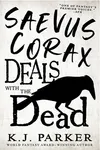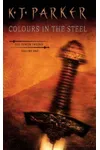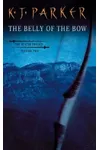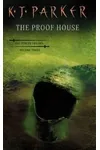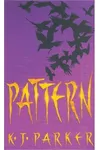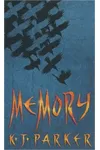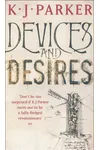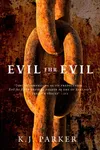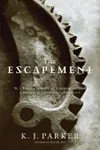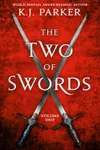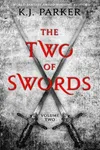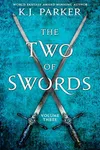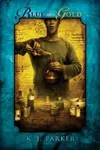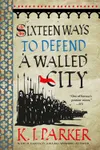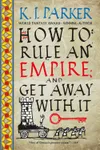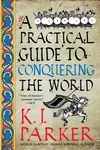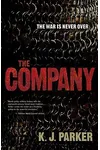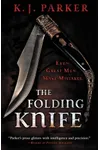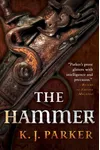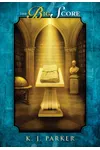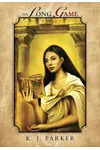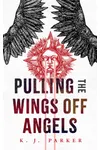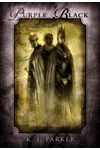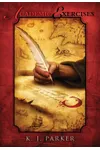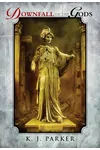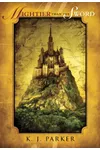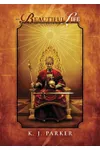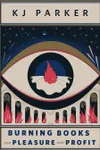Picture a British storyteller who spun tales of cunning engineers and tragic heroes, all while hiding behind a mysterious pen name—meet K.J. Parker! Known for intricate fantasy novels that weave economics, engineering, and morally gray characters, Parker captivated readers for 17 years before revealing their true identity as the humorous fantasist Tom Holt in 2015. With a knack for blending gritty realism and dark humor, Parker’s stories are a unique gem in the fantasy genre.
From the siege-laden Sixteen Ways to Defend a Walled City to the revenge-driven Engineer Trilogy, Parker’s work hooks readers with its sharp prose and unpredictable plots. Let’s dive into the life, works, and lasting impact of this enigmatic author!
The Making of K.J. Parker
Born Thomas Charles Louis Holt on September 13, 1961, in London, K.J. Parker grew up as the son of novelist Hazel Holt. Educated at Westminster School, Wadham College, Oxford, and The College of Law, Holt initially pursued a career as a solicitor in Somerset. But his creative spark, ignited early with a poetry collection at age 13, led him to writing full-time by 1995. Under the K.J. Parker pseudonym, Holt crafted a distinct voice, distancing his grimdark fantasy from the comedic mythopoeic novels he wrote as Tom Holt.
Why the secrecy? Holt later shared that the pseudonym allowed him to explore darker, more serious themes without clashing with his established humorous style. This dual identity gave him the freedom to experiment, resulting in a rich catalog of fantasy that feels both grounded and otherworldly.
K.J. Parker’s Unforgettable Stories
K.J. Parker’s novels are set in meticulously crafted secondary worlds, often resembling ancient Rome or medieval Europe, but with a twist: magic is scarce or absent, and practical concerns like currency valuation or blacksmithing take center stage. The Fencer Trilogy (1998–2000) follows Bardas Loredan, a fencer-at-law navigating a brutal legal system through duels, blending intense swordplay with political intrigue. The Engineer Trilogy (2005–2007) centers on Ziani Vaatzes, an exiled engineer whose quest for revenge reshapes empires through mechanical ingenuity.
Standalone novels like Sixteen Ways to Defend a Walled City (2019) showcase Parker’s wit, with an engineer-turned-leader using unorthodox tactics to save a city under siege. Parker’s short stories, such as the World Fantasy Award-winning novella A Small Price to Pay for Birdsong (2011), often explore magic’s darker consequences, contrasting the novels’ focus on human conflict and economics. Themes of tragedy and self-destructive ambition permeate Parker’s work, delivered in a sharp, cynical prose that keeps readers hooked.
Parker’s style is hard-boiled fantasy—think protagonists who’d rather wield a screwdriver than a wand. This blend of pragmatism and moral ambiguity sets Parker apart, earning praise for intricate storytelling and vivid worldbuilding that feels eerily real.
Why K.J. Parker Matters
K.J. Parker redefined low fantasy by stripping away traditional tropes like dragons and sorcery, focusing instead on human ingenuity and flawed characters. This approach resonated with readers craving grounded yet thrilling narratives, influencing authors who explore similar blends of realism and fantasy. Parker’s ability to craft compelling stories under a secret identity for nearly two decades also sparked fascination, proving the power of a well-kept literary mystery.
With multiple World Fantasy Awards and a loyal cult following, Parker’s legacy lies in showing that fantasy can be as much about the mechanics of power as it is about magic. Their work continues to inspire readers to question the cost of ambition and the systems that shape our world.
About K.J. Parker
- Born: September 13, 1961, London, England
- Key Works: Fencer Trilogy, Engineer Trilogy, Sixteen Ways to Defend a Walled City
- Awards: World Fantasy Award for Best Novella (2012, 2013)
- Pseudonym Revealed: April 2015 as Tom Holt
Ready to explore a world where wit meets warfare? Grab Sixteen Ways to Defend a Walled City and dive into K.J. Parker’s gripping low fantasy today!
